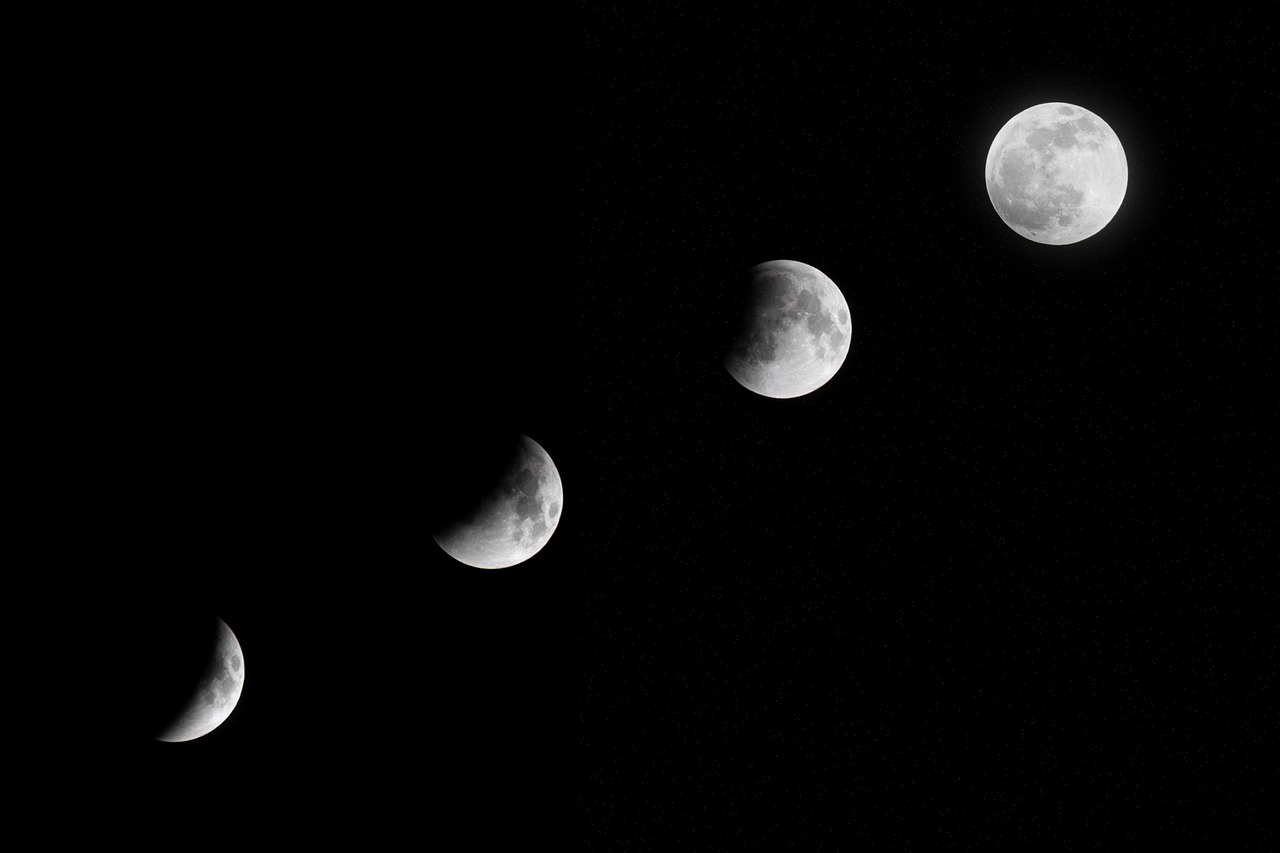The Islamic calendar is lunar, meaning that all Islamic months are based on the sighting of the moon. And since the months are based on the moon, so are all the Islamic dates and holidays. The sighting of the moon plays a significant role in determining whether Muslims perform their religious obligations or not. Keeping this at the forefront, this blog will delve deeper into moon sightings and the rulings surrounding this spiritual practice.
Effect of Moon Sightings On Religious Obligations
Moon sighting is an integral part of Islam. It is the practice through which some of the most important religious occasions are determined, such as Ramadan and Eid al-Fitr. Its importance can be understood by the simple fact that if the moon is not sighted, it is impermissible to fulfill these religious obligations. Furthermore, this practice is so significant that there is a separate supplication to recite when the moon is sighted.
Dua For Moon Sighting
اللهُ أَكْـبَر، اللّهُمَّ أَهِلَّـهُ عَلَيْـنا بِالأمْـنِ وَالإيمـان، والسَّلامَـةِ والإسْلامِ، وَالتَّـوْفيـقِ لِما تُحِـبُّ رَبُّنـا وَتَـرْضَـى، رَبُّنـا
وَرَبُّكَ اللهُ
Transliteration
Allāhu Akbar, Allāhumma ahillahu `alayna bi ‘l-amni wa ‘l-īmān, was-salāmati wa ‘l-‘Islām, wat-tawfīqi limā tuḥibbu Rabbanā wa tarḍā, Rabbunā wa Rabbukallāh.
Translation
Allah is the Most Great. O Allah, bring us the new moon with security and Faith, with peace and in Islam, and in harmony with what our Lord loves and what pleases Him. Our Lord and your Lord is Allah.
Reference
Is Sigthing The Moon Obligatory?
A majority of scholars hold the view that sighting the moon of Ramadan on the first day of the month is a communal obligation. This means that if some people in the community fulfill this obligation, then others will be exempt from it. While some jurists hold the view that moon sighting is recommended.
Sheikh Ibn ‘Uthaymin RH was asked, “Are all the Muslims considered sinful if none of them sights the new moon when Ramadan begins or ends?” He replied, “Sighting the new moon of Ramadan or Shawwal was established at the time of the Companions of the Prophet PBUH because Ibn ‘Umar RA stated that the people tried to see the new moon, and when he informed the Prophet PBUH that he had seen it, the Prophet PBUH fasted and also told the people to observe the fast.
And undoubtedly the way of the Companions is the most complete and best guidance.”
Narrated Aisha RA, “The Prophet PBUH used to count the days of Shaban in a way he didn’t count the days of any other month. Then he used to fast when he sighted the new moon of Ramadan. But if it was cloudy, he would count thirty days and then fast.”
Sighting The Moon: New Ways vs Old
At the time of the Prophet PBUH and the several years that followed, people used to look for the moon with their naked eyes. However, as the world progressed and technology advanced, telescopes and other scientific instruments were introduced for observing the moon. This is permissible, and it is accepted to act upon the sighting of a moon by an instrument. What is not acceptable, though, is relying on astronomical calculations of the moon and starting any religious obligation without first sighting it.
Who Sights The Moon
There are several committees worldwide that are specifically established to observe the moon during Islamic dates, such as Eid. These committees comprise Islamic scholars who are equipped with the proper procedures and knowledge to perform this duty. They sight the moon and then inform the rest of the people of the crescent’s presence. For example, in Pakistan, the Ruet-e-Hilal Committee is responsible for sighting the moon. It is not impermissible for ordinary people to look for the moon, but since the committee is equipped with professional instruments, they are given this responsibility.
Sighting The Moon: Day vs Night
There are many times when the moon is also visible during the day. And it poses the question of whether the moon is sighted during the day, does it hold any significance? Regarding this, several renowned scholars have expressed their opinions. For example, Abu Al-Hasanat Al-Laknawi (may Allah have mercy on him), a Hanafi scholar, states in the light of the Quranic verse, Yunus 10:5, that:
“This indicates the moon is certainly the sign of night and not the sign of day. Therefore, sighting the moon during the day holds no significance.”
He further stated, “The imams of the four schools of Fiqh clearly state sighting the moon in the daytime doesn’t lead to any rulings and only holds significance when it is done at night.”

